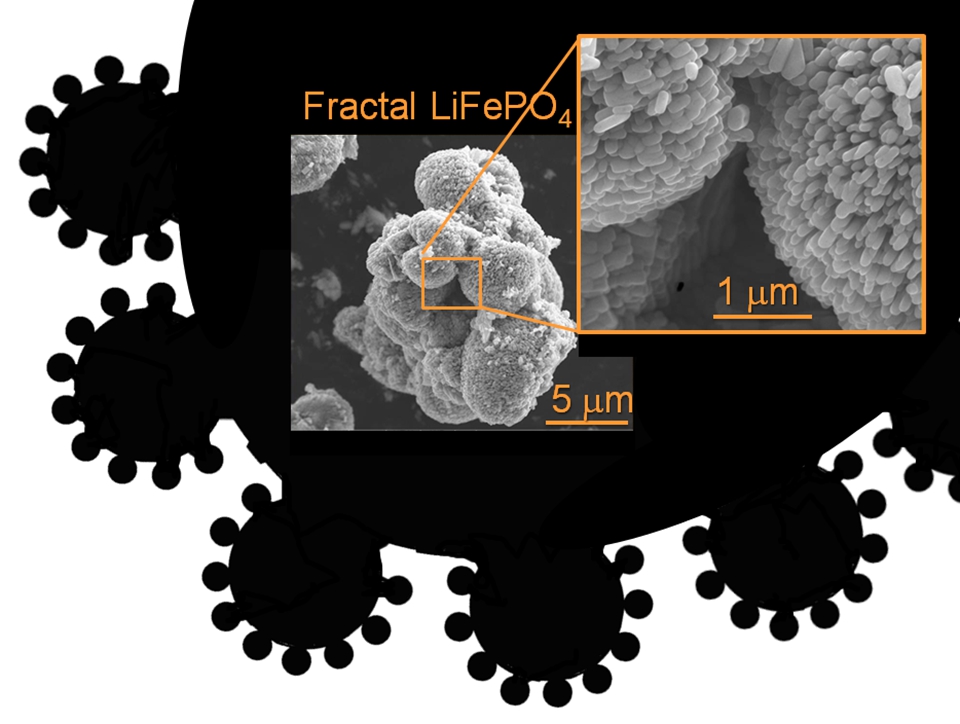During the last decades Lithium Ion Batteries (LIBs) have dominated the market of energy storage devices. However, cost as well as environmental and safety concerns make it difficult for this technology to fit in the electric vehicle niche. Our research focuses on the development of electrode materials that can offer great capacity, safety and stability to be use in LIBs. LiFePO4 is an environmentally friendly and cheap material that intercalate Li+, however the low conductivity and slow ion diffusion make necessary to generate a hybrid carbon/LiFePO4 material. In addition, as a core of our research area, we are trying to reduce the size of the particles and create morphologies which could provide a better path for ion diffusion.
Moreover, fractal granularity offers a similarly improved electrode/electrolyte interface. The spontaneous growth of nanoparticles into larger microstructures leads to self-assembled constructions that can provide simultaneously a high surface area for high power and a large bulk for high energy. Recently, we got the real-world equivalent of fractal granularity in LiFePO4 materials.
